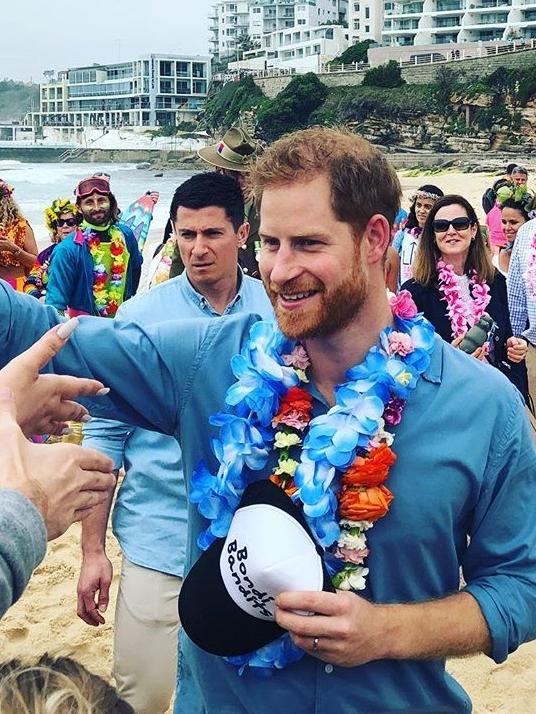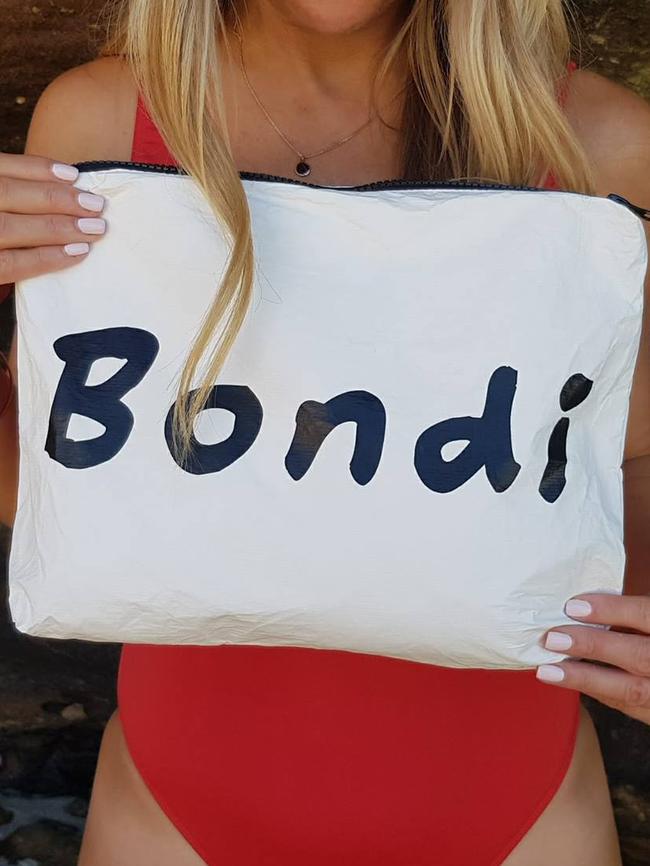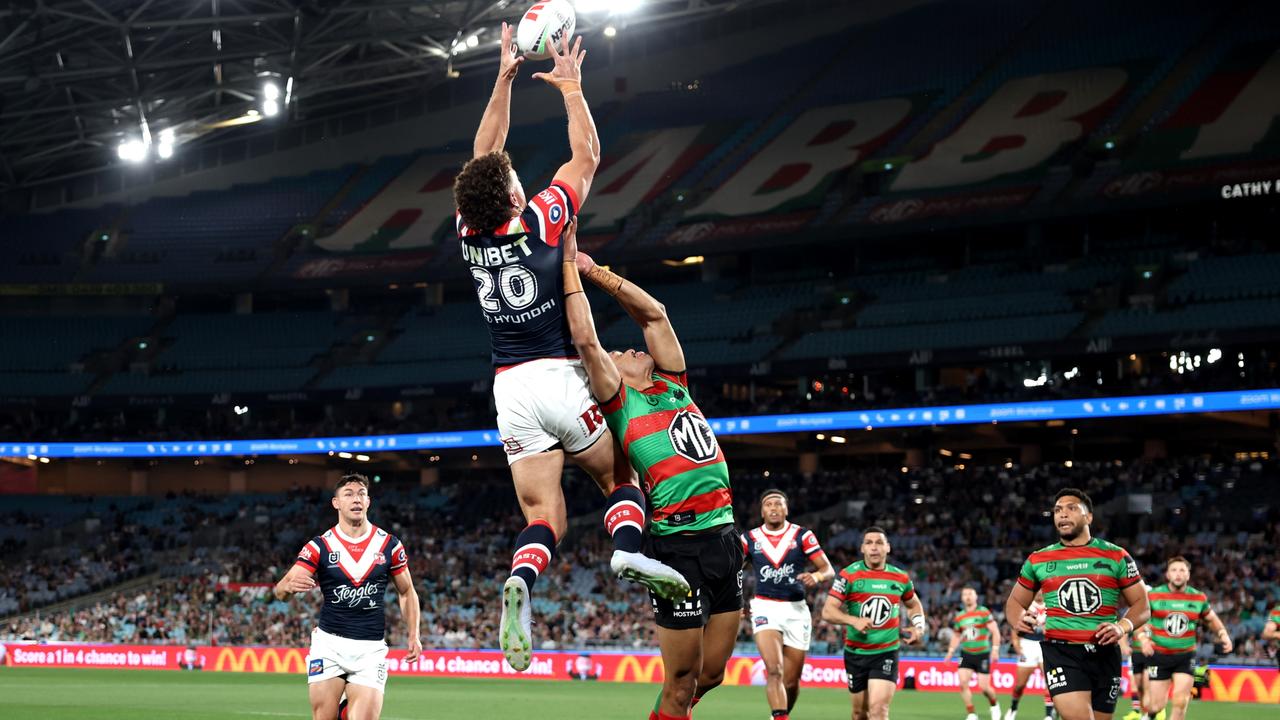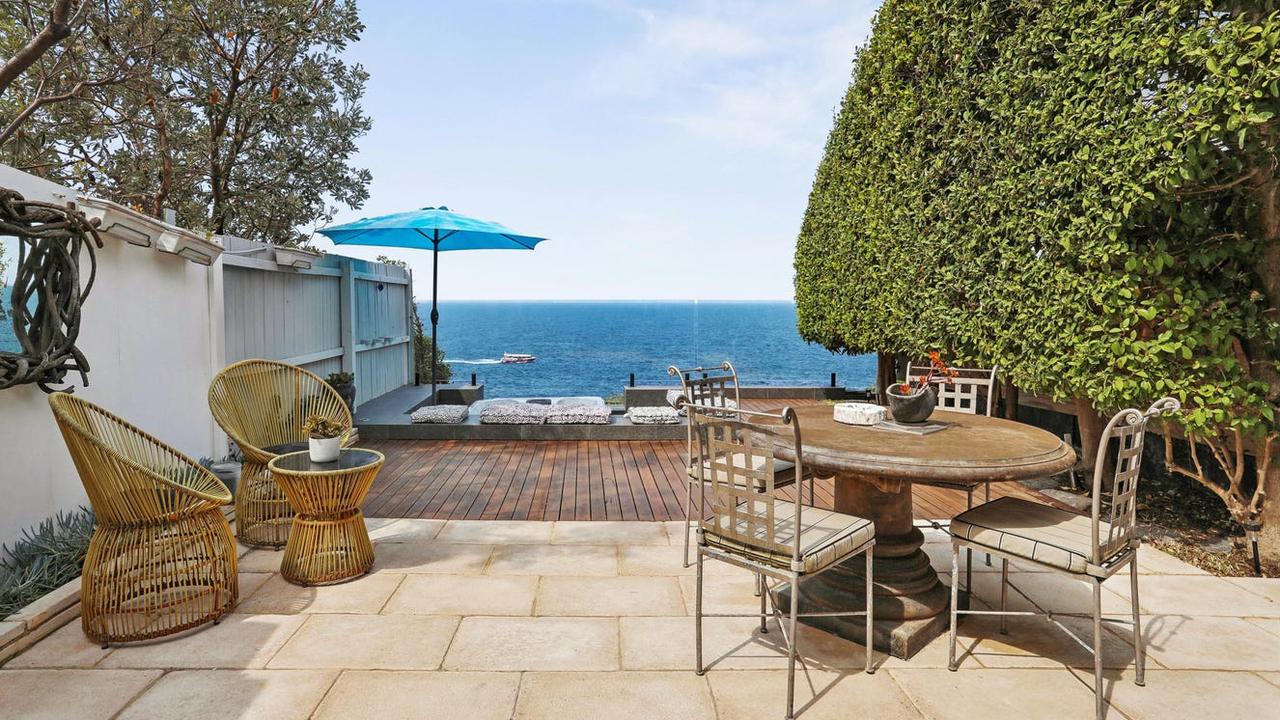Sustainability in the east: The rise of the conscious consumer
As the community clamours for climate action, an ethical fashion revolution is upon the east, writes Candice Chung
For someone who runs one of the country’s most successful denim brands, Bryce Alton’s wardrobe is surprisingly sparse. The CEO of Nudie Jeans Australasia, with its flagship store on William St Paddington, rarely buys new clothing, committing instead to his favourite items with the kind of fierce discipline that would make decluttering guru Marie Kondo proud.
“[My oldest pair of jeans] is a pair of Nudie’s Regular Ralf from 2003,” says Alton. “I’ve retired them now because the fit isn’t so much my style anymore, but I wore those for about seven years. I can probably get another five years out of them if I wanted to.”
Alton believes in buying well and taking care of the things you love. This means repairing rather than replacing — a practice that springs from Nudie Jeans’ sustainable ‘life cycle’ ethos and extends to his personal life. “The problem with consumerism out there [is that] things aren’t made to normally last. We’re designing products that are meant to last and are encouraged to be loved and repaired,” he says.
A pioneering label founded in 2002 by Swedish trio Maria Erixon, Joakim Levin and Palle Stenberg; Nudie Jeans is one of the only fashion brands in the world with a re-use campaign that offers customers free lifetime repairs.
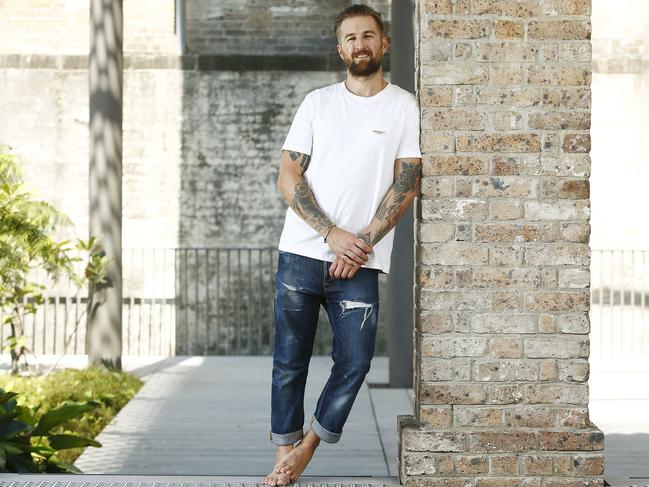
“You can come into our store in Sydney, Tokyo, Zurich, Stockholm — wherever you like, and our staff will gladly repair your jeans. No questions asked,” says Alton who lives in Paddington with partner Bec and their two kids Wolfie, five, and River, two.
Last year, the company repaired over 60,000 pairs of denim and kept them from hitting landfill. This saved 345 million litres of water back in 2017 alone.
“When the consumer doesn’t want their jeans anymore, they can trade them in,” says Alton, “We can either use them for scraps to repair other people’s jeans, or resell them as a second-hand vintage product — and the life cycle continues.”
Moving from Canada to Sydney in 1993 with his brother with a “vision to bring blue jeans to Australia in an era of surf and skate wear” Alton worked odd jobs to save up enough money to follow his fashion dreams.
He and his brother opened a distribution company and clothing store called Mint in Manly in 2002, but Nudie Jeans were the standout product of all the brands they stocked, so he called the Swedish owner and begged him to allow him to open the first Nudie store in the world in Paddington.
Some 17 years later, that same original store remains on William St and the brand is proudly the most sustainable denim brand in the world. In 2019, every single pair of jeans sold in store are vegan-friendly and 100 per cent organic in its denim range (meaning no harmful chemicals are used in the production of cotton).
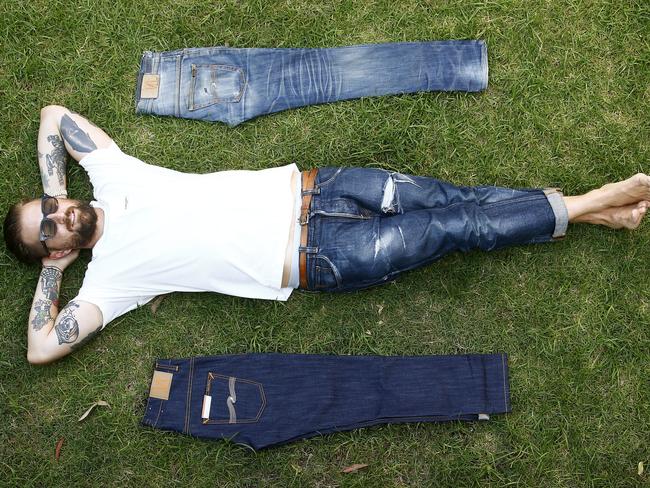
Like Alton did when he first discovered the brand, consumers are now asking more questions about where their clothing comes from, he says.
“They're demanding transparency and this is changing consumer buying patterns. It's a revolution that’s coming and I feel strongly that it’s not a matter of if, but when. Brands will be forced to change or their future will be uncertain.”
If circularity — or a sustainable life cycle — is what today’s makers strive for, then building a like-minded community in which to sell these goods is something that Loren Morton and Kristie Keith have strived to carve out.
The friends and business partners who met through their husbands seven years ago, decided to open up a sustainable homewares shop after Morton renovated her Bondi home and found it hard to source unique, handmade fixtures, homewares and furniture.
Morton, a fourth generation Bondi girl who grew up on Bondi Beach — “My great grandparents lived on Hall St and my grandfather was a Bondi lifesaver in the Bondi SLSC” — had come from a business background studying a Bachelor of Business at UTS and grew up in a family that had companies involved in the motor industry, property and finance.
Keith, with 15 years experience in the retail and wholesale fashion industry was the perfect business partner for their shop Commune, where they curate ethical and fair trade handmade products and fashion to sell in the Glenayr Ave store.
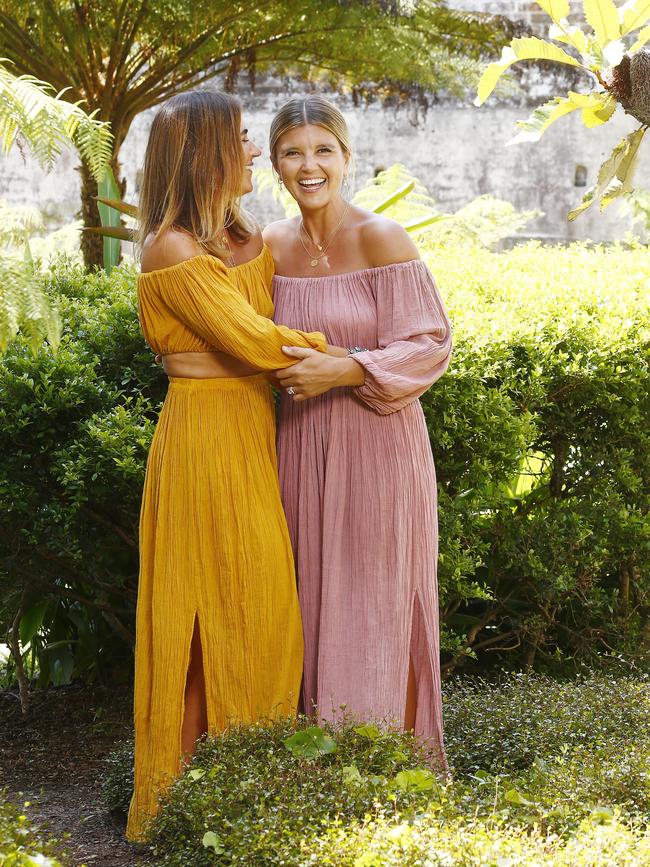
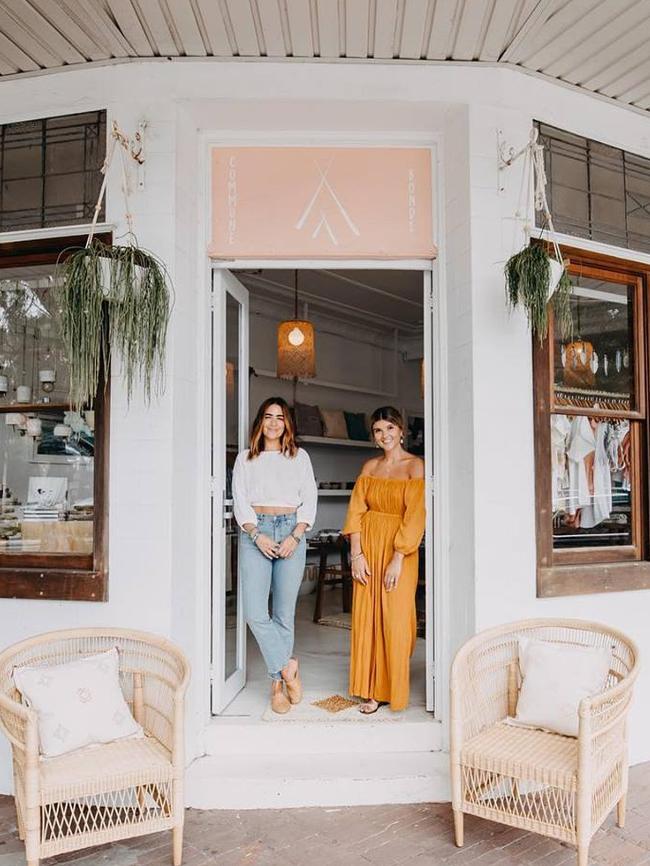
“The name Commune is a perfect fit,” says Morton, “It can mean many things but to us, [it’s] a place where people who share a common ethos and ethics come together.”
From furniture to homeware and fashion, Commune stocks artisanal creations that bring back an element of care and tactile connection that was reminiscent of their grandparents’ days. The pair cite the rise of the Japanese view of Wabi-Sabi as an influence — a concept that celebrates the imperfect, incomplete and impermanent — something customers are beginning to appreciate in handmade goods.
Besides the earthy, hand-picked items in store, the duo also run regular ‘meet the maker’ workshops.
The idea is for locals to fully immerse in the artisanal culture, and become empowered to get hands-on. “We are really proud of the community that has organically grown around us. Our loyal customers, the artisans whose products we stock and the businesses who surround us at five ways in North Bondi have made our little pocket here so enjoyable,” says Morton.
“The repeat customers who live locally and tourists from overseas that come in tell us they found us on Instagram and we were on the top of their list for shops to visit.
“Some are sourcing sustainably or ethically made pieces. Others come for the unique fashion labels we stock. Some come for the one off pieces of furniture we source. Others are coming to buy gifts. We really do cater to a wide range of customers. And because we are mostly sustainably and ethically made we feel our customers shop with us because they are choosing to shop ethically. So many people are becoming more and more conscious of what they buy, where it is made and if it has an impact on our planet.”
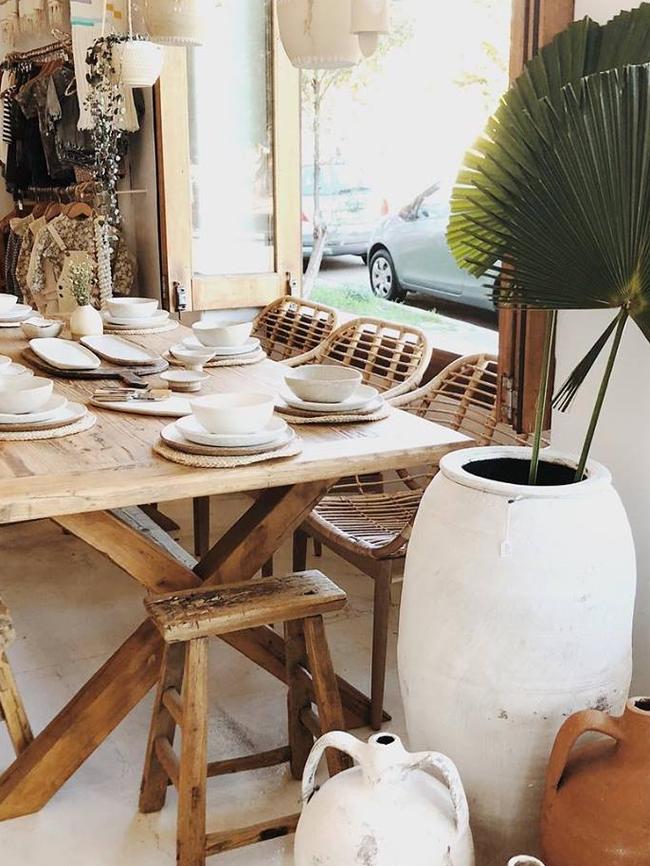
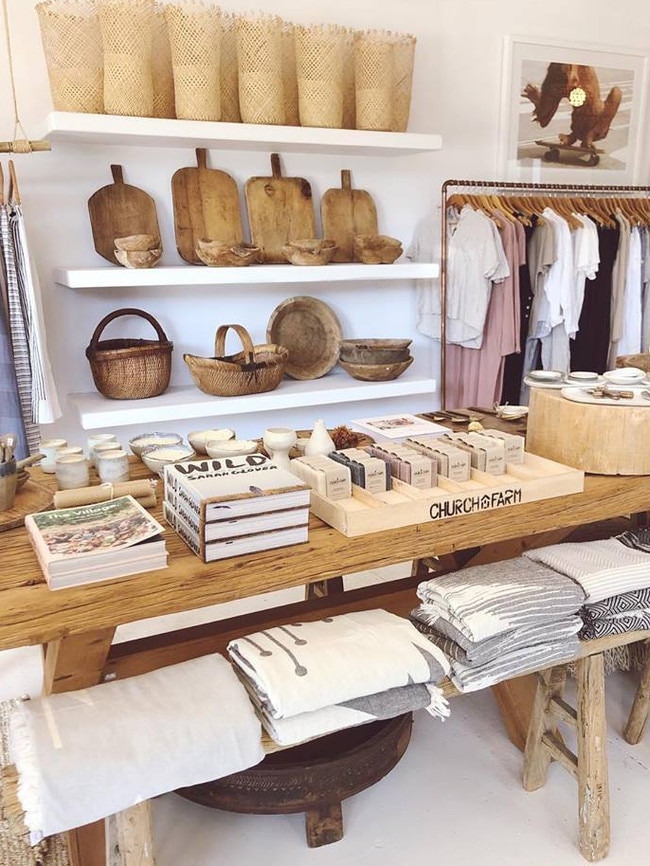
While global brands like Nudie continue to break new grounds on sustainable practices and Commune sources products from across the world, start-ups like Bondi Bandits are filling an eco-friendly niche on the ocean front. In 2017, friends and Bondi locals Annie Pryor and Amy Lynch noticed a gap in the surfwear market. Namely, unisex children’s rashies that aren’t just practical and fun, but also good for the planet.
The idea came over a surfing weekend, when the pair went shopping for Pryor’s daughter and found that everything was either blue for boys or pink for girls — nothing the 10-year-old wanted.
Out in the ocean, while sitting on their boards, Pryor and Lynch decided to take matters into their hands. They’d met years ago volunteering for the charity Free to Shine, which empowers young girls in Cambodia through education. And now they were keen to start a social enterprise that not only aligns with their social value but also has a positive environmental impact.
“We literally just sat out on the boards and thought, ‘Why don’t we make swimwear using some kind of sustainable material?’ The whole idea just came from there — it was our first ‘board’ meeting,” laughs Lynch.
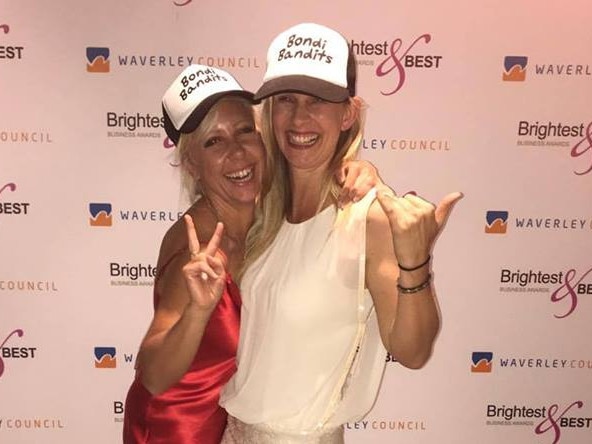
With Pryor’s background as a fashion buyer, the pair soon found a fabric that is made from discarded and recycled fishing nets.
“The fishing nets are collected by a charity called Healthy Seas. The divers go down, collect the fishing nets, and then taken to Croatia and made into the material we use,” says Lynch. “We’re in the ocean all the time. It just makes sense to use something we’re taking from the ocean, making it into swimwear, and then putting it back in the ocean in a good way.”
They now also make beach bags, swim bags and a portion of the profits goes towards supports education for girls in Cambodia.
The brand received global attention when Prince Harry was photographed with a Bondi Bandits hat during his Sydney visit beaming the name around the world. The hats promptly sold out.
As a bonus, the swimwear fabric is recyclable, chlorine-resistant and lasts twice as long as other traditional swimwear. All designs are hand-printed by Pryor and Lynch using ocean-friendly ink.
“To us, sustainability means thinking about the future. Too often, people think of fashion as a ‘throwaway industry’. You buy something, and then you throw it away the next season. So it’s just about making more conscious choices and really thinking about how you’re impacting the future.”
